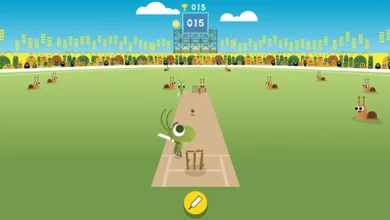When Doubled a Mild Reprimand – Crossword Clue & Answer

Introduction
When Doubled a Mild Reprimand The English language is filled with fascinating linguistic quirks that make it both complex and intriguing. One such phrase that often appears in crossword puzzles and language discussions is “when doubled, a mild reprimand.” When Doubled a Mild Reprimand But what does this phrase mean? Essentially, it refers to a word that, when repeated, conveys a gentle form of disapproval or scolding. This expression is frequently used in everyday conversations, literature, and even pop culture.
Understanding such phrases helps improve vocabulary, enhances comprehension skills, and adds a fun element to learning English. In this article, we will explore the meaning, examples, and cultural significance of words that, when doubled, When Doubled a Mild Reprimand function as mild reprimands. We will also uncover interesting linguistic facts related to repetition in the English language.
Understanding the Meaning
The phrase “when doubled, a mild reprimand” refers to certain words that, when repeated, express a gentle form of disapproval or warning. When Doubled a Mild Reprimand These words are often used to scold or caution someone in a non-harsh manner. Such words are typically short, informal, and conversational in nature.
For example, one of the most well-known words fitting this description is “tut.” When used alone, “tut” is a subtle way of showing disapproval. When Doubled a Mild Reprimand However, when doubled as “tut-tut,” it becomes a mild reprimand, often accompanied by a shake of the head or a finger wag. This form of repetition emphasizes the speaker’s discontent while keeping the tone light and non-threatening.
Another example is “tsk” or “tsk-tsk.” This expression is often used to gently chastise someone, indicating disapproval or mild disappointment. When Doubled a Mild Reprimand Such phrases are commonly heard in social interactions, particularly when elders reprimand children or when friends playfully express dissatisfaction with one another.
The repetition of words in English serves multiple purposes. In some cases, it softens the impact of a reprimand, making it seem less harsh and more affectionate. In other instances, it helps to emphasize the sentiment being conveyed. When Doubled a Mild ReprimandWhen Doubled a Mild Reprimand By doubling certain words, English speakers create a playful yet effective way of communicating disapproval without appearing too stern.
Common Words That Fit This Pattern
Several words in the English language follow the pattern of being mild reprimands when doubled. Here are some of the most commonly used ones: When Doubled a Mild Reprimand
1. Tut-Tut
As mentioned earlier, “tut-tut” is a widely recognized phrase that conveys mild disapproval. It is often used in a humorous or sarcastic manner, implying that the speaker is gently scolding someone for a minor mistake or misbehavior.
2. Tsk-Tsk
Similar to “tut-tut,” “tsk-tsk” is an expression of mild reprimand, often accompanied by a clicking sound made with the tongue. This expression is frequently used when someone makes a poor decision or behaves in a way that is slightly disappointing.
3. No-No
The phrase “no-no” is commonly used to indicate that something is forbidden or unacceptable. It is often used in a playful manner, particularly when speaking to children. For instance, if a child reaches for something dangerous, a parent might say, “That’s a no-no!” When Doubled a Mild Reprimand
4. Boo-Boo
While “boo-boo” is often used to refer to a small injury, it can also imply a mistake or error. Saying “You made a little boo-boo” is a lighthearted way of pointing When Doubled a Mild Reprimandout a minor mistake without making the person feel bad.
Each of these expressions follows the same pattern—doubling the word to create a phrase that is both informal and effective in delivering a mild reprimand.
Usage in Crosswords, Literature, and Pop Culture
The phrase “when doubled, a mild reprimand” is commonly used in crossword puzzles. Puzzle creators enjoy using these kinds of clues because they are concise, When Doubled a Mild Reprimand widely recognized, and provide a fun challenge for solvers. Words like “tut-tut” and “tsk-tsk” frequently appear in crossword grids, making them essential for enthusiasts to know.
Beyond crosswords, doubled words that function as reprimands have appeared in literature and pop culture. Classic literary works often use “tut-tut” to portray characters expressing mild disapproval. Similarly, movies and TV shows frequently include characters using phrases like “tsk-tsk” or “no-no” in humorous or dramatic moments. When Doubled a Mild Reprimand
For example, in animated series, wise or elderly characters often use “tut-tut” when playfully scolding younger characters. Likewise, in sitcoms, parents and teachers frequently employ “no-no” when correcting children’s behavior in a lighthearted manner. When Doubled a Mild Reprimand These expressions have become ingrained in popular culture due to their relatable and easily recognizable nature.
Fun Linguistic Facts & Similar Expressions
Repetition is a powerful tool in language, and English is full of doubled words that serve various functions. Here are some interesting facts about repeated words and their significance:
1. The Power of Reduplication
Reduplication is the linguistic term for repeating a word or part of a word to create a new meaning. In English, reduplication can be used for emphasis (e.g., “very, very good”), playful expressions (e.g., “choo-choo” for a train), or mild reprimands (e.g., “tut-tut”). When Doubled a Mild Reprimand When Doubled a Mild Reprimand
2. Other Languages Use Similar Doubling Techniques
Many languages use word doubling to create emphasis or indicate disapproval. For example:
- In Filipino, “hala-hala” is used to express concern or warning. When Doubled a Mild Reprimand
- In Chinese, “māma” (妈妈) means mother, showing how doubling can also indicate familiarity.
- In Japanese, “dame-dame” (ダメダメ) is a phrase used to strongly say “no” or “stop that.”
3. Doubling Can Change Meaning Entirely
In some cases, doubling a word completely alters its meaning. For example, “bye” means farewell, but “bye-bye” is often used in a playful or affectionate tone, When Doubled a Mild Reprimand particularly when speaking to children. Similarly, “go-go” in English slang refers to something energetic or fast-paced, rather than simply “going.”
Conclusion
Understanding the phrase “when doubled, a mild reprimand” allows us to appreciate the creative ways language is used for communication. When Doubled a Mild Reprimand Words like “tut-tut,” “tsk-tsk,” “no-no,” and “boo-boo” are simple yet effective in expressing disapproval while maintaining a lighthearted tone.
ALSO READ: Juanita Dorricott




